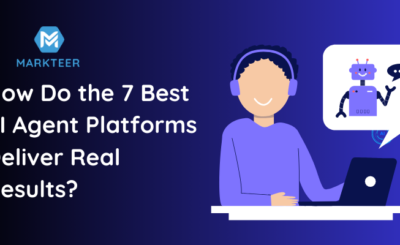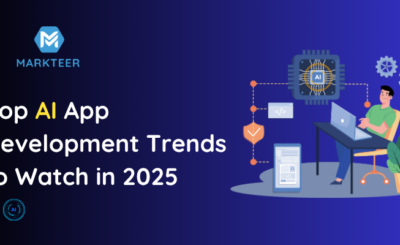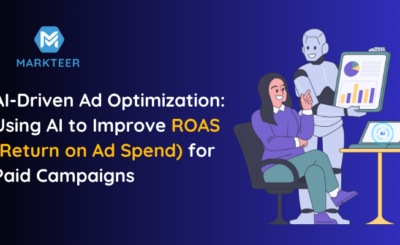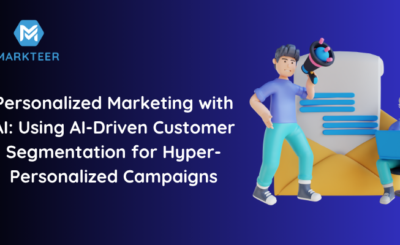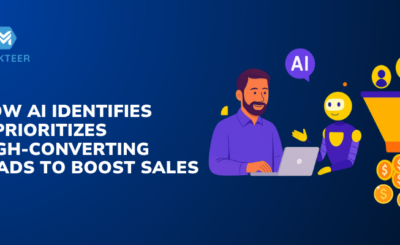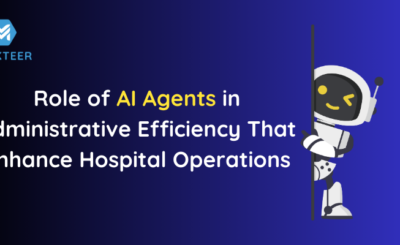Artificial intelligence (AI) is rapidly transforming the healthcare industry, offering powerful tools to enhance diagnosis, streamline processes, and improve patient outcomes. As healthcare systems worldwide face mounting pressure to deliver high-quality care efficiently, AI is emerging as a vital solution to bridge gaps, reduce costs, and enhance performance.
In this article, we explore how AI solutions are revolutionizing the speed, accuracy, and clinical outcomes in healthcare. We’ll cover real-world applications, statistics, challenges, and future trends shaping the AI-healthcare landscape.
Understanding the Role of AI in Modern Healthcare
AI in healthcare involves the use of machine learning (ML), natural language processing (NLP), computer vision, and deep learning algorithms to perform tasks that typically require human intelligence. Artificial intelligence in healthcare encompasses these tasks, including medical imaging analysis, predictive analytics, robotic surgery, drug discovery, virtual nursing, and other related fields.
A 2024 McKinsey report noted that AI in healthcare could create over $350 billion in annual value globally by improving operational efficiencies and clinical performance (source). This potential has led to rapid adoption by hospitals, pharmaceutical companies, and telehealth platforms.
How AI Is Enhancing Speed in Healthcare
One of AI’s most significant contributions to healthcare is the acceleration of time-consuming processes. In emergency medicine, for example, AI-enabled triage tools can rapidly evaluate symptoms, prioritize patients, and recommend next steps—all within seconds.
Radiology and Imaging: Traditional radiology workflows can take hours, but AI-powered image recognition systems, such as Aidoc and Zebra Medical Vision, can scan and interpret X-rays, CTs, and MRIs in minutes, sometimes even before a radiologist reviews them.
Administrative Automation: AI chatbots, voice recognition systems, and robotic process automation (RPA) tools automate tasks such as appointment scheduling, billing, and medical coding. This not only reduces the administrative burden but also ensures faster access to care.
Example: The Cleveland Clinic utilizes AI tools to schedule surgeries and optimize staff deployment, resulting in a 30% increase in operational throughput (Cleveland Clinic Annual Report, 2023).
How AI Is Boosting Accuracy in Diagnosis and Treatment
AI is proving to be a game-changer in improving the precision of diagnoses and treatment recommendations.
AI in Diagnostics: AI algorithms trained on large datasets can accurately detect diseases. For instance:
- Skin cancer detection using AI has achieved 95% accuracy, comparable to dermatologists (JAMA Dermatology, 2023).
- AI models developed by Google Health can accurately identify diabetic retinopathy in eye scans with over 90% accuracy, helping to detect blindness early, particularly in underserved areas.
Personalized Treatment Plans: AI Personalized Medicine Solution analyzes patient history, genetics, and biomarkers to suggest customized treatment regimens. IBM Watson for Oncology, for example, reviews millions of medical papers to recommend personalized cancer treatments, aligning with evidence-based protocols.
AI for Better Outcomes: Enhancing Patient Health
AI doesn’t just speed up and sharpen care—it also directly improves patient health outcomes.
Predictive Analytics and Preventive Care
AI models can forecast disease risks well before symptoms appear. By analyzing electronic health records (EHRs), wearables, and genetic data, AI enables clinicians to intervene early. This is especially valuable for chronic conditions like diabetes, heart disease, and sepsis.
For example, Mount Sinai Hospital in New York utilizes AI to predict and prevent acute kidney injury (AKI), resulting in a nearly 20% reduction in hospital mortality (Mount Sinai Research, 2022).
Virtual Health Assistants and Remote Monitoring
AI-powered platforms, such as Babylon Health and Sensely, offer symptom checkers, medication reminders, and remote patient monitoring, which have helped reduce unnecessary hospital visits by up to 25%.
Real-World Examples of AI in Action
- The Mayo Clinic utilizes AI models for radiotherapy planning in cancer treatment, reducing planning time from hours to minutes while enhancing accuracy.
- PathAI collaborates with biopharmaceutical companies to enhance pathology diagnosis, particularly in complex cancers such as breast and prostate cancer.
- Butterfly Network’s AI-powered handheld ultrasound allows frontline healthcare workers to scan and interpret images in real-time, even in remote areas.
These applications reflect how AI is democratizing access to quality care and augmenting human expertise.
Key Challenges in AI-Driven Healthcare
Despite its promise, integrating AI in healthcare comes with several hurdles:
- Data Privacy & Security: Handling sensitive health data raises compliance issues (e.g., HIPAA, GDPR). Secure and ethical data usage is essential.
- Bias in Algorithms: AI systems trained on biased or limited datasets may deliver inaccurate or unfair results, especially for underrepresented populations.
- Lack of Integration with Existing Systems: Many hospitals still rely on outdated infrastructure, which makes AI adoption challenging.
- Clinician Trust & Regulation: Many clinicians are cautious about fully trusting AI outputs. Moreover, regulatory frameworks, such as FDA approval for AI tools, are still in the process of evolving.
Also Read: AI-Driven Data Analysis That Transforms Healthcare Decision-Making
Future Trends in AI Healthcare Solutions
The future of AI in healthcare looks increasingly integrated, proactive, and personalized. Key upcoming trends include:
- Generative AI in Clinical Documentation: Tools like Nabla Copilot and Suki AI are helping clinicians reduce documentation time by automatically generating SOAP notes and patient summaries.
- AI-Driven Drug Discovery: Companies like Insilico Medicine and DeepMind’s AlphaFold are leveraging AI to shorten drug development cycles from years to months.
- Digital Twins of Patients: Future AI systems may simulate a patient’s physiology digitally, enabling clinicians to test treatments virtually before applying them in real-world settings.
- Federated Learning for Data Privacy: To address privacy concerns, hospitals may adopt federated learning—a method where AI learns from decentralized data without transferring it to a central server.
Also Read: The Amazing Ways in which AI is Revolutionizing Healthcare
Conclusion
AI in healthcare is not just a trend—it’s a paradigm shift that’s enhancing the speed, accuracy, and quality of care like never before. From faster diagnoses and reduced administrative overhead to predictive insights and better patient outcomes, AI is touching every corner of the healthcare ecosystem.
As more healthcare providers embrace AI and data infrastructure improves, the industry is poised to deliver smarter, safer, and more personalized care. However, thoughtful implementation, ethical oversight, and continued human-AI collaboration will be crucial to unlock AI’s full potential in healthcare.
“AI is transforming healthcare from reactive treatment to proactive precision—discover how it’s reshaping the future of medicine.”
Frequently Asked Questions (FAQs)
What is AI’s role in healthcare?
AI enhances diagnosis, automates admin tasks, and supports personalized treatments to improve care delivery.
How does AI speed up healthcare services?
It accelerates triage, image analysis, and scheduling, reducing wait times and boosting operational efficiency.
Can AI improve diagnostic accuracy?
Yes, AI can detect conditions like cancer and diabetic retinopathy with accuracy comparable to that of specialists.
How does AI personalize treatments?
By analyzing patient history and genetics, AI suggests customized therapies aligned with clinical evidence.
How does AI enhance patient outcomes?
It enables early risk detection, supports remote care, and lowers complications through predictive insights.
How do they ensure campaign performance?
They monitor campaign ROI through continuous data analysis, A/B testing, and performance optimization to drive revenue growth.
Do they offer AI-powered solutions?
Yes, they provide AI-powered tools in real estate (smart property search, valuation, chatbots) and hospitality/travel (automated booking, multilingual support, real-time updates).

